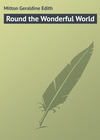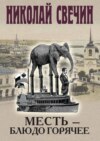Читать книгу: «Round the Wonderful World», страница 22
CHAPTER XXX
THE GREAT DIVIDE
We are now in the train running toward the great ridge of mountains which rises like a backbone through the country from north to south, cutting off the territory of British Columbia from Alberta, though both are provinces of Canada. The Rockies! What ideas of grizzly bears and Indians and scalps and trails the name brings up before me! I don't suppose you have anything like the same feeling about them, because you weren't brought up on Fenimore Cooper and Ballantyne and all those other writers who are old-fashioned nowadays. Perhaps you have never even read The Wild Man of the West, or Nick o' the Woods? It makes me sorry for you!
The Clays were good to the last; they brought us up on the little launch by river to New Westminster, and then we went by electric cable-car to the mighty town of Vancouver on the Pacific Coast. What a town! Wide streets, huge buildings, tram-cars, and much bustle and life. But what struck us most was the splendid playground of Stanley Park which covers all the ground at the end of the peninsula stretching out into the sea. This is not an Englishman's idea of a park at all, for we think of the rather stiff green expanses, with a few trees scattered here and there, that we are used to at home. Stanley Park is just a bit of primeval forest with roads running through it. There are immense trees rearing their crowns on stems twelve feet in diameter. There are thickets and wild creatures and rich undergrowth. The inhabitants of Vancouver are lucky indeed, and they have another park on the other side of the town too. Stanley Park overlooks the harbour, where lie ships of all nations, from the liners of China and Japan to the tiny tugs of the Cannery Companies. The amount of trade coming here is immense. The ships carry cargoes of tea, rice, and silk and oranges, with skins from Siberia, and take away grain, timber, fish, machinery, cattle, and manufactured goods. There are some sailing ships, you still see them in this part of the world, and these are loading masses of timber baulks from the great pine woods inland. Lumbering and logging are the two great occupations of the Western Canadian winter, and what you see here is the fruit of that work. Terribly hard work it is too. Swinging an axe all day among the great giants of the forest requires knack as well as strength, and when a man first starts that game he quickly finds he is as weak as a baby till his muscles get hardened to it. When cut down the trunks are dragged to any stream, or creek, as they call them here, to be drifted down to the coast. It is a wonderful sight to see a river about half a mile wide literally covered with tree trunks wedged against one another from bank to bank. When the logs get jammed, and have to be released, it requires a great deal of courage to go right into the middle of the stream and find the key-log, the one which holds the whole together, like the keystone of an arch; most exciting work this is, many a man loses his life or his limbs over it. In Burma, where the teak companies run their business on the same lines, elephants are taught to do this; they feel around with their trunks and draw out the right log, and then make for the banks at full speed, to get out of the way before the whole mass of tons' weight breaks loose and comes down upon them. But here there are no elephants; dogs are the beasts of burden, and fine work they do in teams, drawing laden sleighs over the frozen snow, – but dogs can't pull out timber when it is jammed. A lumber man has to be a bit of an engineer too, and learn how to dam up the stream to make enough water to float his logs; he is a jack of many trades, and generally a fine fellow too.
If we had come straight on from Victoria in the Empress steamer from Japan we should have landed at Vancouver. The Empress Line belongs to the Canadian Pacific Railway Company, which has its terminus there. This is one of the most miraculous railways in the world. We are on it now. When first it ran out to the Western end, after surmounting indescribable difficulties in crossing the mountain country, it stopped at that little place we passed through when we came to Vancouver from New Westminster. You remember we saw a deserted town, solitary and silent, on the inner curve of the bay? It is called Port Moody, and the name suits it to a T. It has a right to be moody, for when it was known the railway was going to end here the town sprang up in a week or two, in the way Canadian towns do; but the very first winter was so terribly severe that ice was driven up into the bay and blocked it completely, preventing vessels from getting to the terminus at all, and so the directors saw they must carry their line on farther round the bay to the northern point, and here Vancouver arose; but the irony of it was that no such winter has ever been known again! It only came that once, just to blot out Port Moody's chances. So the place lies mouldering away, with the lumber houses falling to pieces and the wharves rotting, and only a few wooden crosses and headstones on the hill to mark the graves of those who stayed behind when the others went.
This is a very fine train, the cars are open all the way down, so we can walk from end to end, the seats face in the direction we are going, and the backs can be swung over to the other side in the same way as on a tram-car. I know you have already noticed the very spruce negro attendants, because I saw you staring at the first one who appeared with all your eyes! There is an observation car with huge plate-glass windows at the end of the train, and we will go there to-morrow when we get into the mountains. I saw that there was a placard saying the negro attendant will answer all questions! I hope he gets a very high salary!
It was eight o'clock at night before we left Vancouver, and as there is a capital dining-car on the train, we had better get dinner at once. But the fun begins when we go to bed. I send you along first and say I'll turn in after a last smoke, but I have hardly settled down to an interesting conversation with a man in the smoking-car before I see you standing beside me looking very troubled. Well, what is it? In a low whisper you say —
"I can't go to bed there; there's a lady in the same car."
"Never mind! She has her own bunk, I suppose?"
"Yes, but – " a long pause – "she drops her hairpins on to me!"
My laugh makes the man beside us very inquisitive. Never mind, old man! Pick them up and return them to her in a neat little packet to-morrow, but whatever you do don't go to sleep with your mouth open!
It certainly is funny. When I join you I find that the lady is in the upper bunk above that which you and I are going to occupy together. The curtains hang straight down and it is a very tight fit indeed to wriggle into my place without pulling open the top part, and a still more difficult job to get out of my clothes lying in a space like a ship's berth.
In the morning I take care to get up early and rouse you, and as we vanish out of the compartment we hear a little giggle, and looking back I see a long lock of brown hair hanging down over the edge of an upper bunk. I hope you gave her back her hairpins!
We are surprised that the train is standing still, and want to find out why. We saunter along to the observation car and breathe the glorious freshness of the air, chilled by the great white peaks which rise shining up against a clear sky. Seeing that several of the men passengers have climbed down on to the track and are wandering along it we follow, and round the next corner come upon a cattle-train off the lines and blocking the way. She was just turning on to a siding to wait for our coming when the disaster occurred, and now she lies helpless, with twenty cars filled with cattle who are lowing in a disconsolate questioning way. Just look at the poor beasts, they are packed tighter than ever we see them in England, simply jammed up against each other like sardines in a tin. One of them has fallen, and the others bulging out over the space thus made are trampling on him. A fine-looking fellow, six feet high, in a blue shirt and cowboy hat, with a red handkerchief twisted round his throat, comes along with a pole, and skewering it under the fallen ox very cleverly levers it on to its feet again, holding it up until it forces its way upward itself. He jabs at it once or twice to make it move, but not unkindly. He looks a rough specimen and has a two days' growth of beard, but we go up to him, as I want to ask questions about the cattle. To our astonishment the moment he speaks we know him for an educated Englishman. "Oh, they're not badly looked after," he says; "they've all been out at Kamloops for twelve hours to get rest and food and water. They were only put on the cars an hour since."
Looking at him keenly I find something very familiar in his face. "Are you a Winchester man?" I ask.
"By Jove!" he says, "Mitton!" and simultaneously I cry "Wharton!" and our hands are locked.
"Got a rough job?" I ask.
He laughs. "It's all in the day's work," he says. "I've done worse things. It's a man's job, anyhow."
"Are you going to live out here permanently?"
"No; not good enough. I've been knocking about now two years, and unless you've got capital you can't make a start; a man can always keep himself, of course, and you see something of life too, but for a permanency, no, it's not good enough! I wrote to my people only last week I'd be turning up next fall to settle down again."
He has to go to help the men who are raising the wheels of the truck on to the line again with jacks. It has been a queer accident altogether. The train was running down in the early hours of this morning when a huge boulder, which had been loosened by the vibration of its passing, fell with terrific force against this particular car, and knocked it off the rails; the coupling-pin connecting it with the next one in front broke, and the engine and first few trucks ran on a little. Luckily the derailed truck ploughed the ground and stopped within a foot or two of the awful gulf yawning below, though those following, which had kept on the track, gave it a shunt forward.
It is not long before all is shipshape again, and we draw slowly past, waving to Wharton, who stands up in his caboose, or van, a handsome, healthy figure of a man. He was one of the best short-slips Winchester ever had. For some time after this we pass waiting trains at every siding, for all the traffic has been held up by the accident.
For the rest of that day it is difficult to spare thoughts for anything but the scenery. It is grander than anything I have ever seen in my life. Very few people in England realise that there is not one but three ranges of mountains to be crossed from the coast. We are through the first now and into the Selkirks, and we have to climb right up these and down again before starting on the heights of the Rockies, which is the only range most people know by name. The peaks, which rise majestically round, are often tree-clad far up; we see huge pines, centuries old, towering out of a tangle of undergrowth that has probably never been trodden by any human foot, not even those of the Indians. There is a great deal of dead wood to be seen, and this hangs out in banners of brown among the sombre green, and here and there are long strips of brilliant emerald, which stand out like streaks. We apply to the long-suffering attendant, who tells us that they are the new growth on some great gash, cut possibly by a fall or landslide in the winter, and as we go along he shows us some of these bare patches, yet unhealed, torn by an avalanche of stones and mud and snow.
We pass on long trestle bridges over foaming torrents far below, and it makes us shudder to think what would happen if the train went over. That man in the smoking-car last night told me a story of what happened to himself on this line, some twenty years ago, when he was crossing over the barrier. The train he was in was trying to get up a tremendously steep incline on a dark and stormy night. The worst of these inclines are not used now, for the way has been engineered round them. The wheels were slipping on the greasy rails, and the engine was snorting and sending up showers of sparks, and inch by inch, foot by foot, the driver manœuvred her up, till he reached one of these bridges. There is a man stationed on duty at each of them. There, notice his hut as we pass – they have to guard the road and see to the safety of it and signal to the train if anything happens to the bridge. The driver communicated with the man on the bridge he had reached, and asked him to wire for an engine to meet him at the next bridge and help him up. Engines are kept in certain places ready for an emergency like this; so the wire was sent and the train struggled on, but when they got to the next bridge there was no engine. The message had gone through all right, and the man in charge there had received a reply that the relief engine had started, and it ought to have arrived by then, but there was no sign of it. The line is a single one you notice, all the way, except at certain places, where there are loops to allow trains to pass each other in the same way as on some tram-lines. After waiting some time the engine-driver steamed slowly ahead. He climbed on and up, and went very slowly, expecting at every turn to meet the relief engine, or find it waiting for him, held up at a bridge. But no, there was no sign of it, and yet every bridge-keeper gave him the same message – it had been sent out and should have been here by now. At last he reached the depôt itself, but there was no engine! What had happened to it? It had been dispatched on the single line, full steam up, into that stormy night, and it had vanished completely! A search-party was sent out in the morning, and found at one of the loops a slight fracture in the line; close to it the ground had been ploughed up, and there, far below, lay a shattered mass of iron and steel in the narrow valley, with the torrent plunging over it. For some unexplained reason the engine had left the rails and pitched straight over the precipice, carrying with her the two men in charge, who were, of course, killed outright.
Beside the bridges there are tunnels and snow-sheds frequently on this line. Our puny tunnels in England are nothing to these; a new one which is just being bored through the Selkirks and fitted with electric light, is five miles in length! The snow-sheds are very peculiar; they are built out over the line with sloping roofs, so that when the avalanches of snow and stones and ice come flying down as the grip of winter relaxes, they are carried off right over any train that may happen to be passing, and thunder on into the valley below. For the line is for the most part laid on a mere shelf hewn out of the rock, with a precipice on the one side and the towering wall of the mountain on the other. We are not likely to get avalanches or snow-slides now, but in the spring it is an extraordinary experience to be in the train and hear the roar and rattle, as of big guns, followed by a hail of bullets, as tons of stuff come down, and most of it goes shooting into space, though a good deal is left on the sheds.
These deep narrow valleys through which the rivers foam are called cañons, and the narrowest point we pass through is called Hell's Gate. Here the rigid walls of the cliffs come so near together that you could easily throw a stone across, and the tossing, foaming water careers along hundreds of feet below. The marvel is how any engineer could have made a line here at all. Think of the blasting and of the machinery which had to be used; how did they ever manage it? For before the track was cut there was nothing to rest on. The engineers must have rigged up some sort of scaffolding, I suppose, but it seems incredible. They had no choice but to do it, for there was no other way to get the line through, except by these narrow valleys, already occupied by a tempestuous river. The railway never would have been made at all but for that grand old man, Lord Strathcona, who died so recently. It was he who inspired people with his own enthusiasm and indomitable perseverance, and he at last who had the honour of driving in the spike which joined up the two ends of the line, that coming up from the Pacific slope, and that which had run across the plains from the Atlantic, and thus he bridged the continent. One of the finest peaks in the mountains is called after him. And the great "park" of 830 square miles, now being formed on Vancouver Island, is to be called Strathcona Park.
The loops which the line makes are another thing to notice. Far up we can see another train crawling about on the mountain-side, which seems impossible! How did it get there? The negro attendant sees us staring, and grins, showing his set of splendid white teeth, "Soon see him below," he says, and he is right; in a comparatively short time we have passed that train at a siding, and afterwards, on looking down, see it deep below us in the valley. The line makes the ascent in a series of great loops, and the sides of these, seen from above or below, appear to be straight lines.
Revelstoke is one of the interesting places we pass; here a branch goes off to the Kootenay country, where there is splendid land and climate for fruit-growing alongside the great lakes.
You ought to be beginning to know something about Canada now. First the salmon-fishing, then the lumbering, next the cattle-export, and now the fruit-growing. It is a fine and prosperous country.
It is the wrong time of year for the fruit, or we might have made an excursion to the south to get a look at it, for we could go down the great lakes, through the Crow's Nest Pass, and back again to the main line in a loop. But the blossom will all be over, of course; in spring it is as great a sight as it is in Japan, with the flowers springing out all along the trunk and branches like the hackles of a cock! Cherries are one of the chief exports, and then there are peaches, pears, apples, and plums, with other things such as strawberries and potatoes to fill in. But many a man's heart must sink when he comes out first from the old country and sees the wilderness he has to start on, for even if it is "cleared" there may be stumps of huge trees sticking up all over, and stones everywhere; it is all much rougher than our neat, tidied-up country. But then, on the other hand, the land is far cheaper, the soil is much more fruitful, and consequently the yield greater. After Revelstoke we pass Glacier, where the line runs round in a kind of amphitheatre, showing a magnificent range of peaks in solemn grandeur rising above the fringe of fir trees.
We have come down from the Selkirk range and now rise to the Rockies, where the track is even steeper and more twisted; here the snowy peaks lifted into the region of eternal snow are higher, but the scenery is not so easily seen, as we are more hemmed in by even narrower cañons. The main interest is in going through Kicking Horse Pass; but here even the negro attendant fails – he cannot tell us how the name arose! His spirits droop, but rise again when he comes eagerly to tell us we are approaching the "Great Divide." We have been running through many tunnels in and out of the "Cathedral Rocks," and now we reach the water-shed of the country, where sparkling streams fall away in opposite directions, one running down to the Pacific, and the other to Hudson's Bay in the north-west. At last we reach Banff, a well-known place, with a huge hotel of the most luxurious kind, belonging to the Canadian Pacific Company. Near Banff is the Canadian National Park, a park indeed, of 5732 square miles, including mountains and forests! You simply can't imagine it; it is a great tract of country, preserved in its natural state, and the haunt of wild things. Here are herds of the buffalo of the West, the bison, a very different fellow from the domesticated Eastern buffalo who so rudely chased you and Joyce. The bison are fine to look at, with their extraordinarily large chests and heads, out of all proportion to the rest of their bodies. Their great shaggy fronts and humped shoulders make a peculiar outline. In years past they were cruelly hunted and killed, but are now protected and encouraged. Now the Government is doing its best to save the remnant.
The amount of land yet wholly untrodden in the heart of these great mountains is difficult to realise; even the Indians only pass through some of it, and no white man's foot has ever touched more than a tithe. Grizzly bears, cinnamon bears, deer, wild sheep, and goats live still in these fastnesses, quite undisturbed by the little line that threads through from sea to sea.































